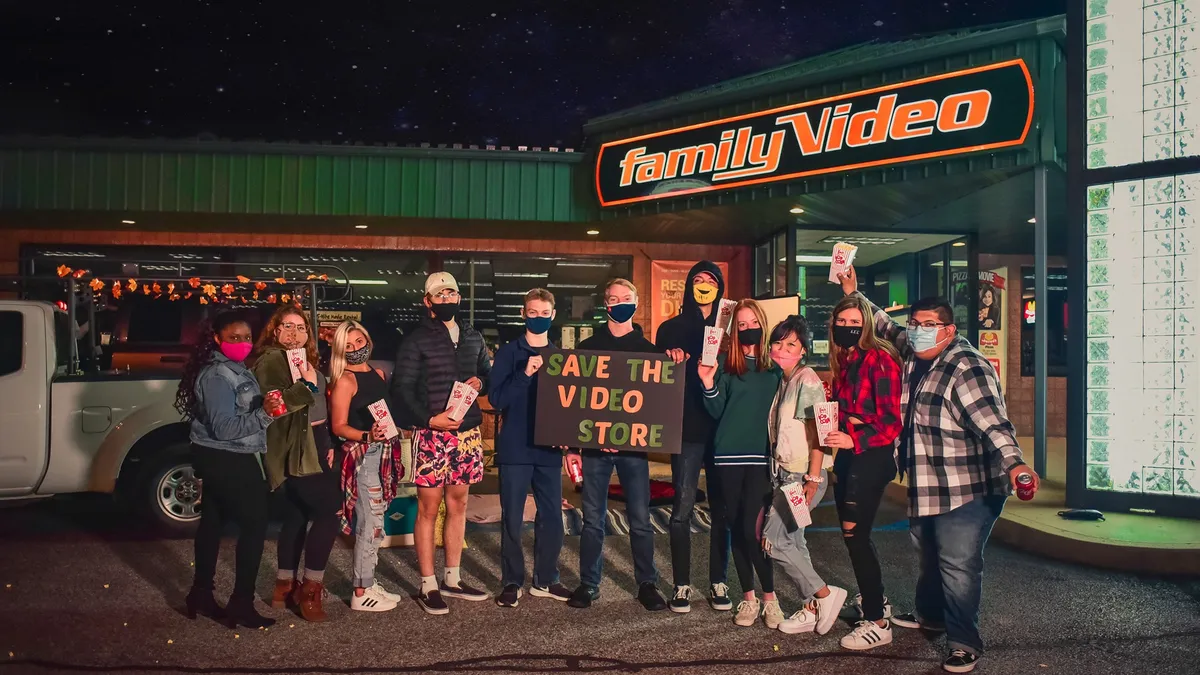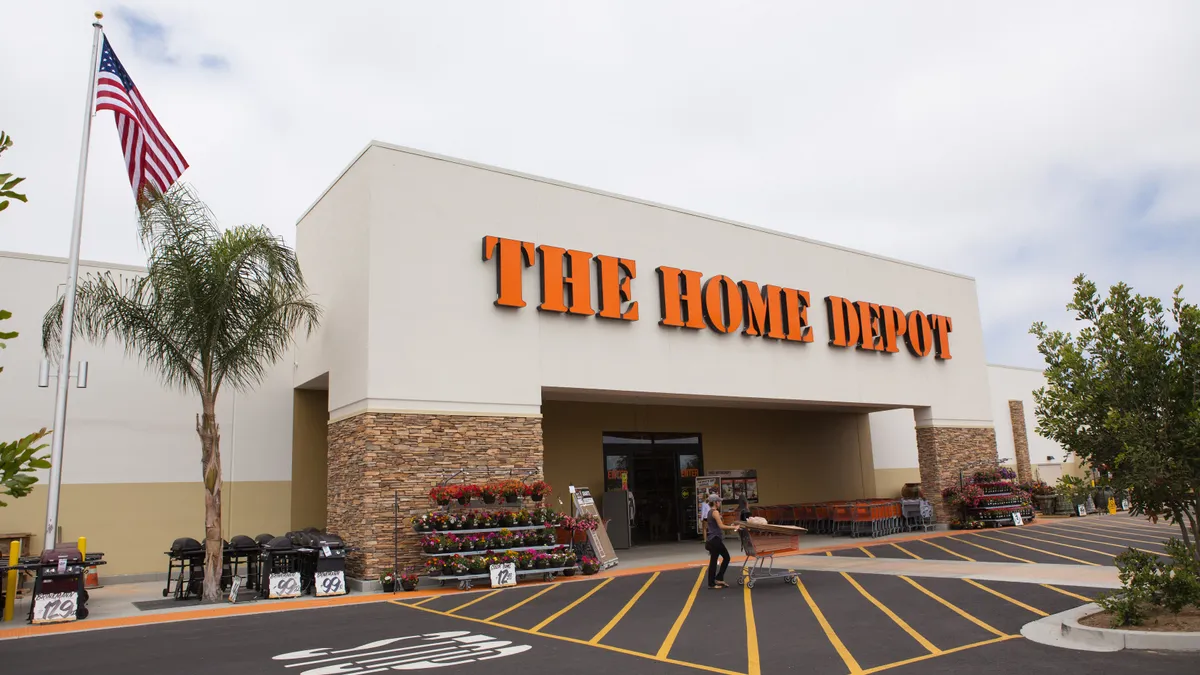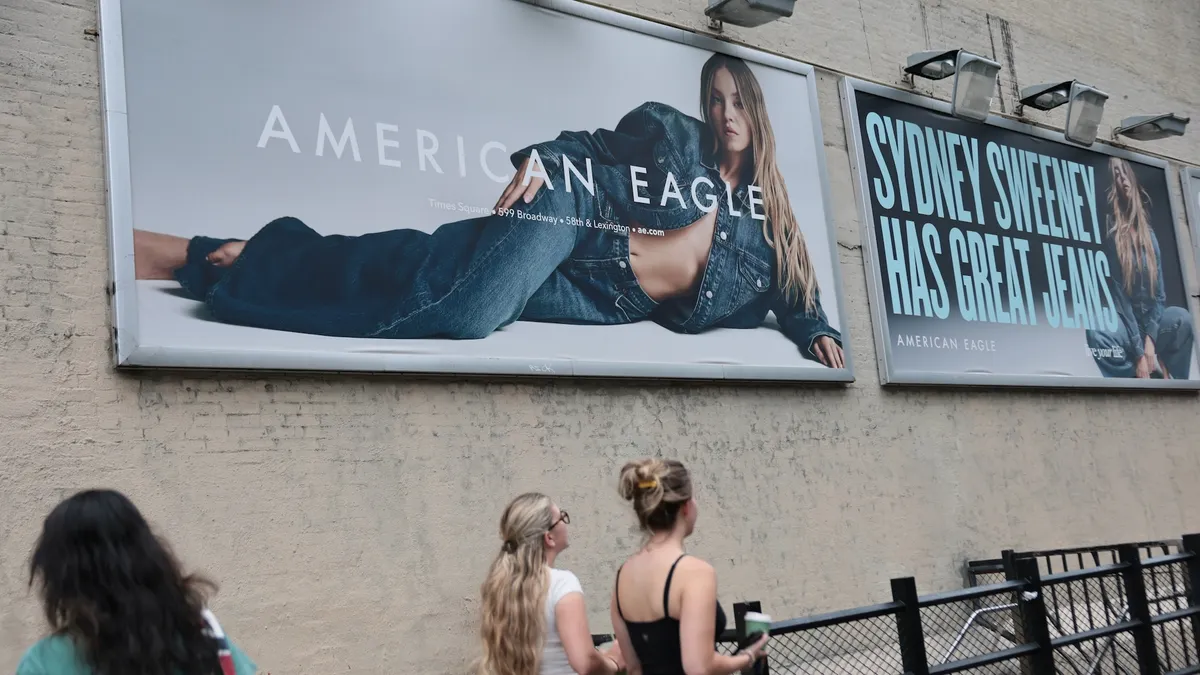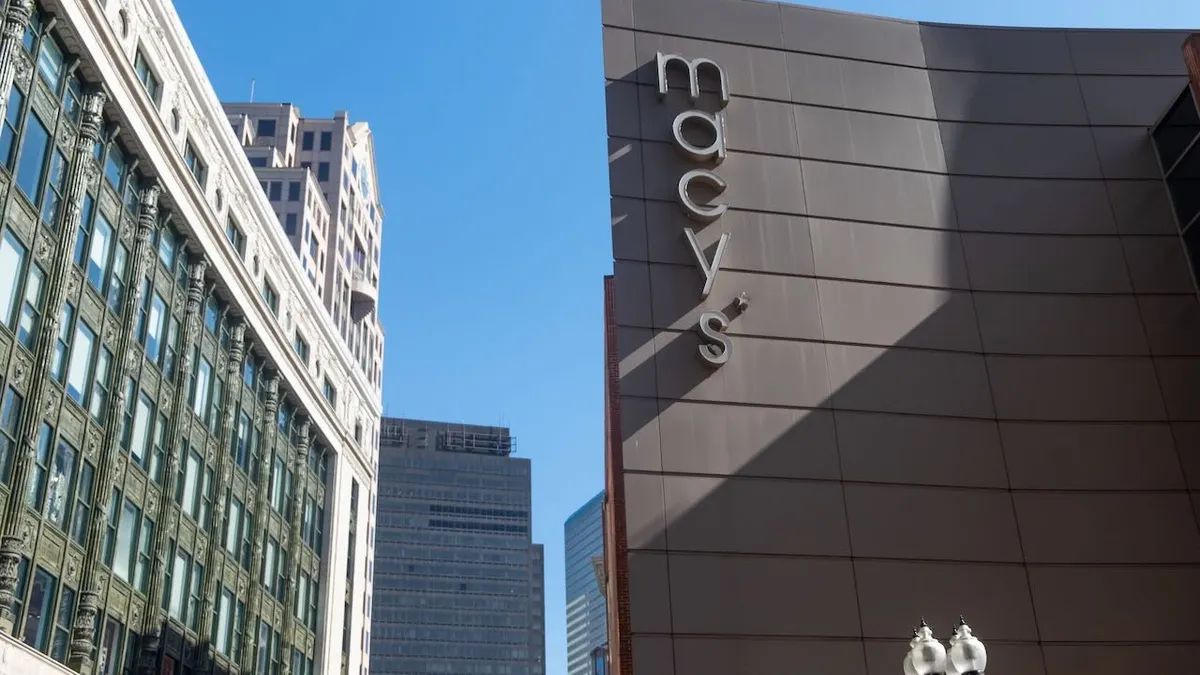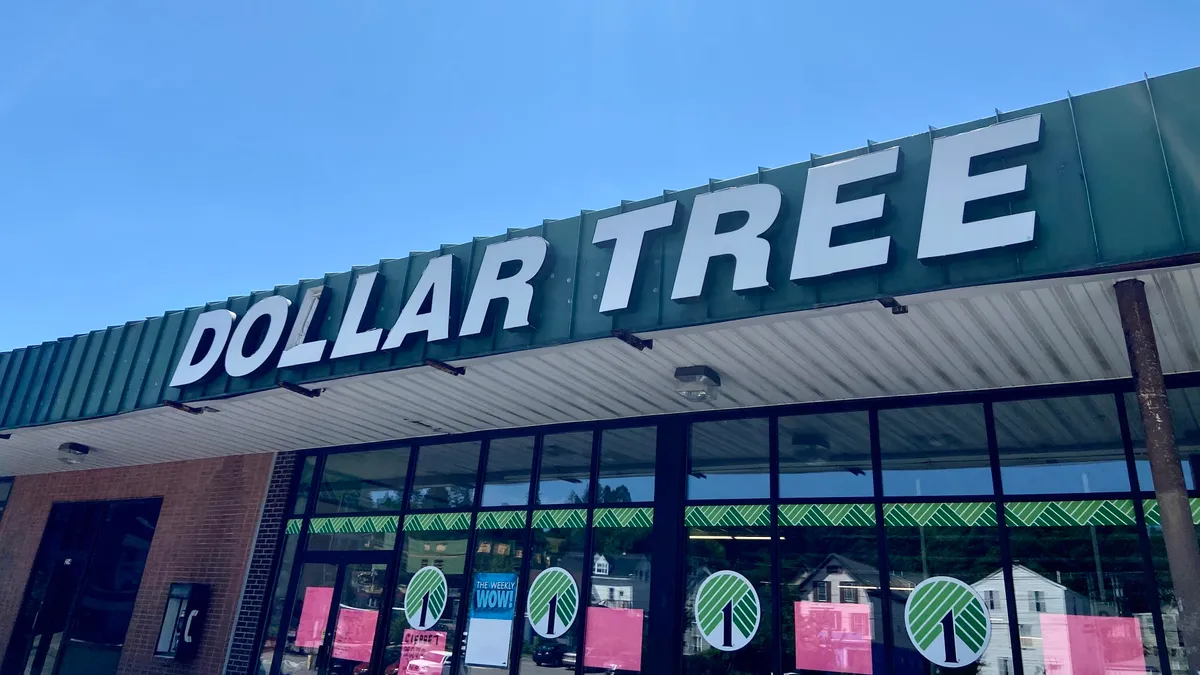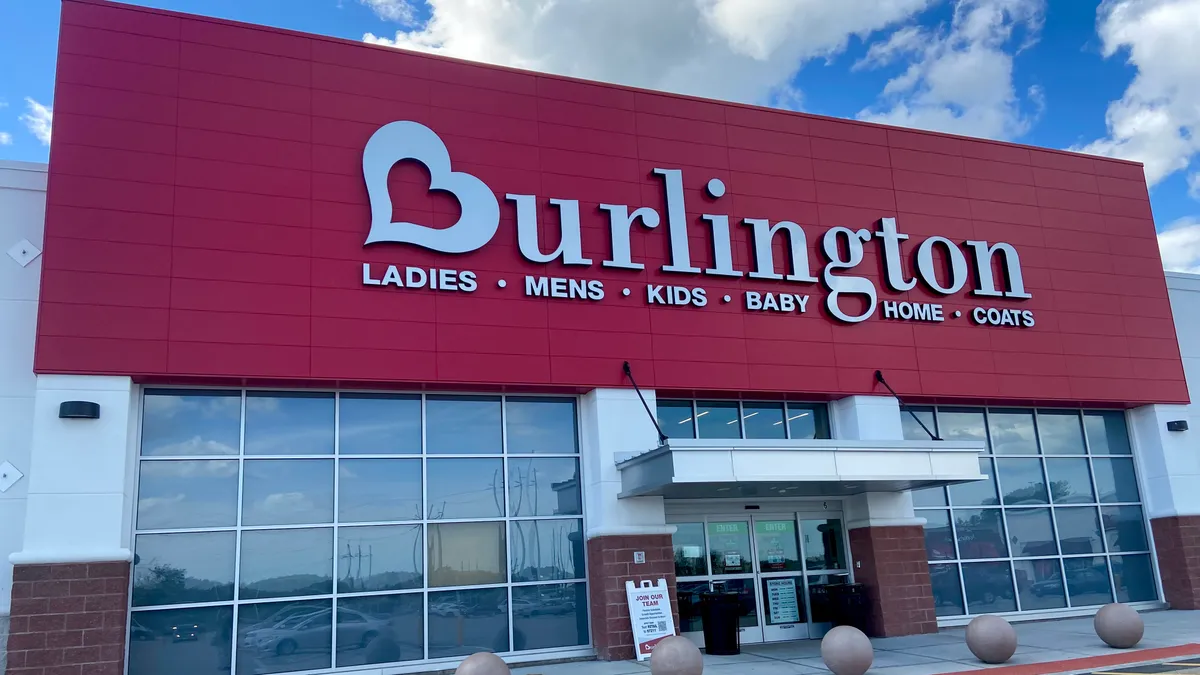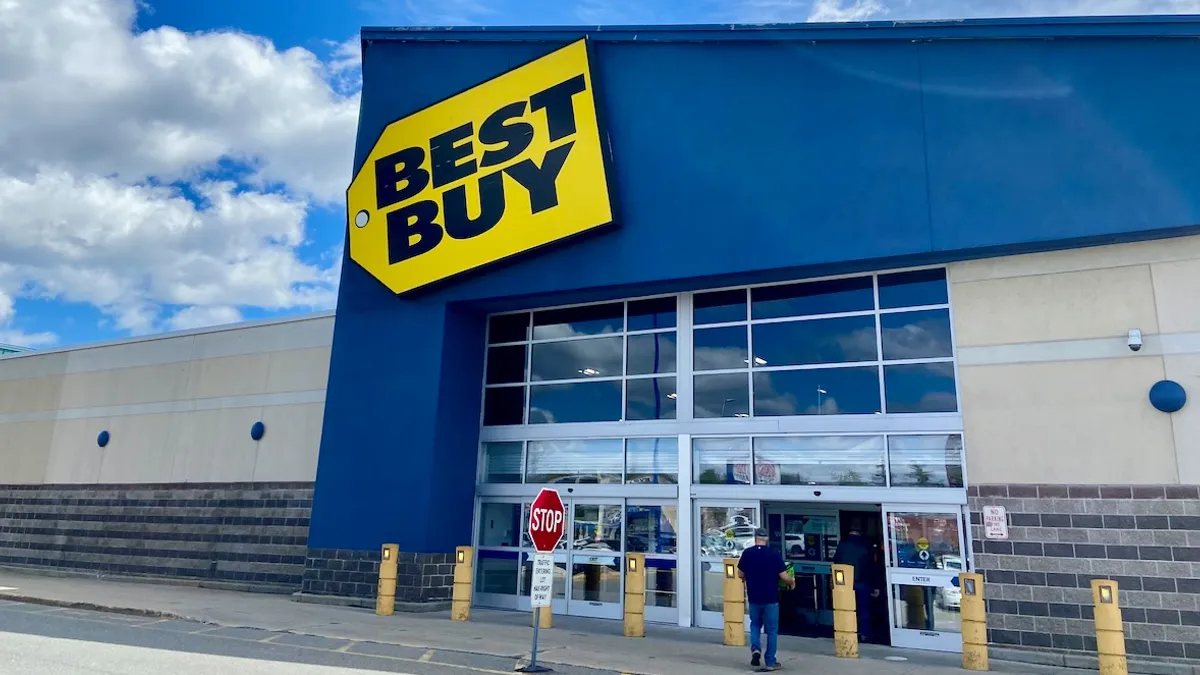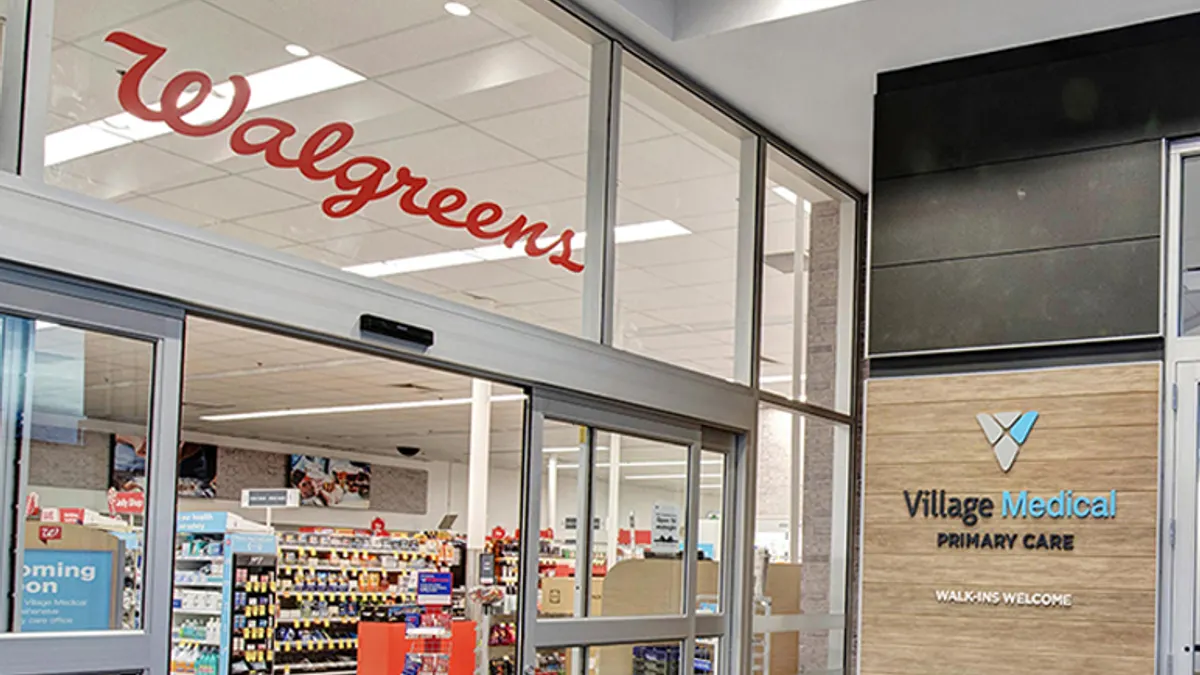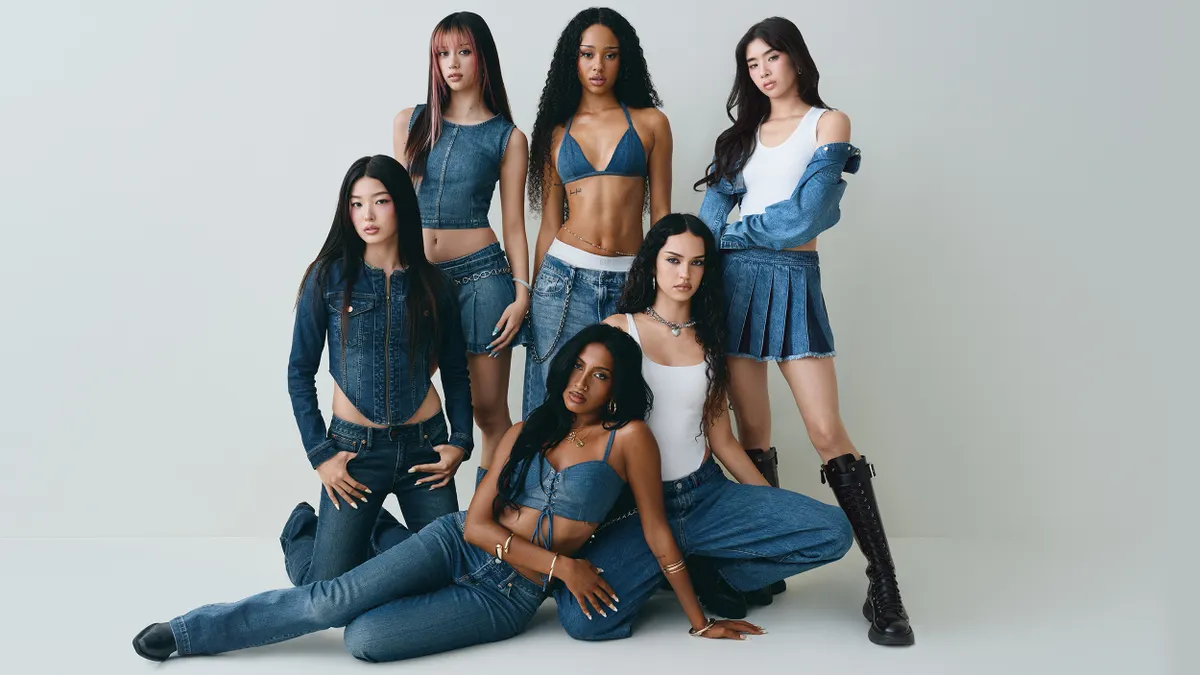For the past decade, Family Video didn't get the memo about the death of the video store.
Hollywood Video was bought by Movie Gallery and both were forced to liquidate in bankruptcy in 2010. Blockbuster also went bust that year and today has but one lone, anachronistic store remaining under its name. Yet Family Video, based largely in the Midwest, opened new stores during some of the years following the big chain wind downs.
In 2018, it had more stores open than the Sears brand or Barnes & Noble. The chain had started shrinking since then as consumer shifts in content consumption caught up with it. Still, Family Video went into 2020 with more than 500 stores.
It will end the year with about half that footprint.
"That was tough. That was the biggest closing we've ever done," said Derek Dye, senior brand manager at Highland Ventures, which owns Family Video.
Add to all the other consumer trends accelerated by COVID-19 the shift to video streaming, which hurt the chain this year. But it wasn't just the depression of foot traffic and uptick in streaming-from-home that forced Family Video to permanently close roughly half its footprint.
The pandemic also disrupted movie production and title releases, from Wonder Woman to the new Bill and Ted movie. "Honestly, being closed for 60 days for COVID did not help, but the slowdown in Hollywood I would say was the biggest thing," Dye said. "Our biggest selling point to our communities is that we're the first ones to have these new movies. We sell them [for rental] the day they come out, on Tuesdays, for $3."
COVID-19's impact on Hollywood left a dearth of quality titles to entice customers into the stores.
"There was a five-month gap when we were just getting B-movie after B-movie, straight-to-DVD type stuff. It's a hard sell right now to come into our store during a pandemic to pick up a movie that's not highly rated," Dye said.
The family business
Family Video traces its company history back to 1946, when Clarence Hoogland founded the distribution business Midstates Appliance & Supply Company, according to the company. A little more than three decades later, when Clarence's son Charlie was running the company, it became a distributor for the first supplier of videocassettes for Hollywood studios.
Back then, the cover price for videos was astronomical by today's standards and too lofty for most customers to purchase. That feature of the business, perhaps more than any other, helped give rise to the video rental model.
In 1978, after the company was stuck with a large inventory surplus of videos, the family started one of the first video rental stores: the Video Movie Club of Springfield, which later rebranded as Family Video. Charlie Hoogland used revenue from video rental to buy up commercial real estate to put the company's stores on — a strategy that the company has long credited with its enduring success.
Keith Hoogland, Charlie's son, who took over as company president in 1995, told Newsweek in 2018 that the company opted to own the property under its stores on the expectation that video stores "literally go out of business almost overnight," and once they did it could sell or lease the stores. Which is exactly what it's done during the COVID-19 era. (More on that in a moment.)
Over the years, property ownership has allowed the company to shrink stores to boost their productivity and both lease out the extra space and put their own businesses adjacent to Family Video. That includes Marco's Pizza, a complement to the video store, and even a vet business.
The decision to own most of their real estate footprint also differentiated Family Video from Blockbuster and other giants, whose stores likely turned unprofitable more quickly because of their lease costs.
Also helping to ensure Family Video's sustainability was its family ownership. "They're privately owned and so they are not answerable to shareholders," said Daniel Herbert, an associate professor at the University of Michigan's film, television and media department. Herbert is also the author of the book "Videoland: Movie Culture at the American Video Store."
"Whereas Movie Gallery, Hollywood Video and Blockbuster had to justify their business plans to a bunch of people watching their dividends shrink or disappear, Family Video is literally a family, and they can decide to do whatever they want," he added.
#SaveTheVideoStore
Before the chain temporarily shuttered in March along with scores of other retailers, Family Video ironically had one of its best weekends in years. "The first week it was like, 'Well, okay, we're going to be quarantined, it might be kind of fun. Let's pick up three or four movies and popcorn,'" Dye said.
After the stores closed, many of the chains customers went to Redboxes at grocery stores and drugstores that were allowed to stay open. The retailer offered curbside service but it was slow to take hold and the company abandoned the effort. (It still offers the service but stopped promoting it.)
By August, months after reopening, the company announced a round of more than 200 permanent closures followed by another round that would leave it with about 250 stores, down from 510 at the start of the year.
Basically overnight, district managers for the video chain became real estate prospectors to find renters for the company property the closed stores sat on. That is a testament both to the company's family mentality and flexibility, as well as how quickly and deeply the pandemic crisis hit the video chain.
"We're in the toughest spot we've probably ever been in, we need to think outside the box," Dye said. "We need to be honest with our customers that we will not be here in the year 2021, 2022 if we don't intervene now."
That urgency led to a marketing campaign, dubbed "#SavetheVideoStore." Family Video reached out to Lion's Gate, Paramount and other studios asking if celebrities they worked with could help out.
Dye said that the budget was effectively $0. "We had no money. We have not spent one dollar on the campaign," Dye said. "Our stores are the ones sending us content. We told them to go paint your stores, put up poster board, change your sign, whatever you've got to do. It's all hands on deck."
"It's a little anachronistic," Herbert said of the #SaveTheVideoStore push. "I feel like I was seeing those same kinds of campaigns 10 years ago."
Along with seeking celebrity plugs, the video chain has been featured in news and blogs based on the campaign. (Retail Dive was among the publications Dye reached out to.) Family Video has also based much of its social media marketing around the hashtag and is pushing out branded merchandise, essentially to remind customers that it still exists — but maybe not for long if people don't keep shopping with them.
"We're not going to hide away from the fact that it's been an absolutely dreadful year for physical media and brick-and-mortar rental," Dye said. "Here's the deal: We cannot be around all that long if we don't get help from our loyal customers and people on the outside."
Pre-streaming nostalgia
To some extent, Family Video is tapping into nostalgia for the era when video stores were the dominant channel for at-home viewing.
That era had a meteoric rise and fall. An industry, sparked by hobbyists and then led by mom and pop stores at first, was built out of pretty much nothing over the course of a few years, as Josh Greenberg chronicled in the book "From Betamax to Blockbuster."
As the video rental model became a dominant channel for at-home movie watching, trips to the video store became a way of life for Americans. "I remember being in elementary school when the first video store in my neighborhood opened up, and it was a treat to go," Greenberg told Retail Dive in a 2019 interview.
Blockbuster and other chains began consolidating the market throughout the 1980s and 1990s. By the 2000s, the industry was already in decline, owing in part to the decision by studios to release DVDs at prices consumers could afford right off the bat. Overnight, Walmart, Best Buy and other retailers became deep-pocketed competitors to the rental chains.
The lightweight DVD also happened to be easy and cheap to mail, letting a startup rent-by-mail service named Netflix gain market share, in addition to helping the vending model led by Redbox to take off.
As the large chains collapsed, studios lost a major channel for their products. "You do have a real decline, I think, in the market for indie movies, that is, feature length," Herbert said.
While the Amazons and Netflixes of the world are producing their own content, much of it is television serials that lend themselves to binge-watching rather than the small-budget indie feature film that video stores helped support by providing a ready market, according to Herbert.
By the late 2010s, the video store was largely seen as a relic (at least in areas of the country without a nearby Family Video). In 2019, a franchise Blockbuster in Bend, Oregon, became the last store under that banner in the world. As such, it became a novelty and tourist destination, which saved it from extinction.
The store's owner, Ken Tisher, knows something about video store nostalgia. His Blockbuster has seen a surge of tourist interest, even in the COVID-19 era. Tisher said in an interview that even amid the pandemic rentals have held steady. He continues to see out-of-state license plates among the store's customers, "which I have really mixed feelings about" given the spread of the disease, though tourist traffic to the stores is still down somewhat.
"The good news is that we're selling product to people who want to come see the last store or be in the last store and buy a T-shirt or sweatpants or different merchandise we have to sell, and so that's helping keep us afloat," Tisher said.
Over the summer, Tisher's store even partnered with Airbnb as part of a marketing campaign for the vacation rental marketplace, allowing the company to add a living room-esque space to the Bend Blockbuster, where families could stay and watch movies after hours.
But Tisher's Blockbuster is just one store. Family Video still has 250 stores to support. As Tisher said on hearing of the chain's go-forward footprint, "Wow, that's still a lot."
Tisher's franchise never had to compete directly with Family Video, but based on what he'd heard from other Blockbuster franchisees in the past, he said, "We're pretty happy they didn't expand to the West, because they seemed to have a business model that worked for them."
Many of the Family Video stores that closed this year may have closed at some point anyway, though going into the pandemic Dye said he would have expected the company to keep operating somewhere around 400 stores for at least three to five years. "Getting thrust into it could be better for the company in the long run," he said.
Next act or final credits?
Family Video faces a demographic challenge that could ultimately pose its biggest existential test. Its average customer is well over 40, Dye said. For younger customers, "without like a real ambassador, like their parents or a relative or even a friend that is older, to say, 'Let's go to a store' — it just probably doesn't cross your mind," Dye said. Or, put another way: "Gen Z is a tough market to get into a video store."
Video stores still have something of value to offer — customer service, human (as opposed to algorithmic) recommendations, product discovery much easier on the eyes and brain than a screen, a consistent and comprehensive title library that doesn't require multiple streaming subscriptions. As for Family Video, it serves many markets that lack the broadband access and the overriding inclination to switch to purely digital forms of watching.
The pandemic undercut many of the advantages Family Video had left over digital video delivery. The question is whether it can bounce back, or if this is the retailer's final stand.
While nostalgia for the video store era — a time when families crowded into friendly, bright, cinema-themed stores to pick out entertainment for the weekend — has helped boost the last Blockbuster, it might not prove enough to support the country's last chain of video stores.
"I don't think that nostalgia is going to support the industry," Herbert said. "The idea that we need to save the video store because it's a cultural landmark — it's a touching sentiment, but it isn't a long-term business model."
"But," he added, "I have to say I've always been charmed by Family Video. And I've been impressed by them. When I first found them, I was like, 'Wow.' It's a really quirky business. Especially as time has gone by, Family Video is just chugging along. They've done a really good job for a long time, and I wouldn't count them out in the short term."



